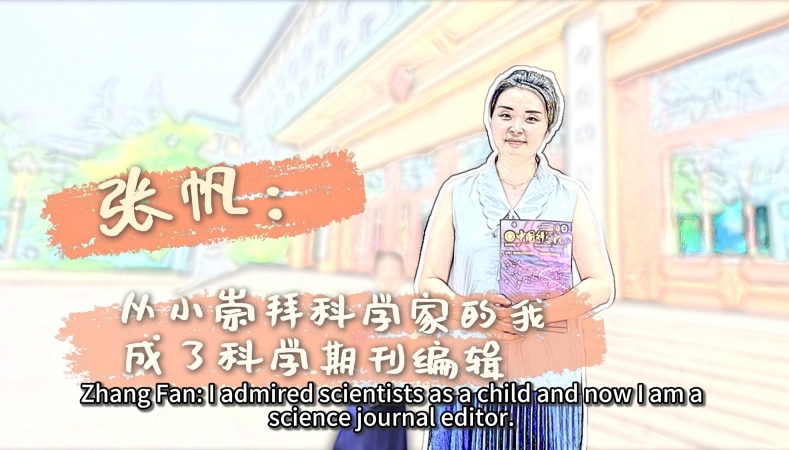Shanghai Strives to Be a Global Sci-tech Innovation Center

A bird's-eye view of Shanghai from the Oriental Pearl Tower. (PHOTO: VCG)
By CHEN Chunyou
Shanghai, as one of the three international sci -tech innovation centers in China, has always played a leading role in building an innovative nation.
By the end of 2020, the basic framework for Shanghai to be a sci-tech innovation center had been established, and the preset targets had been achieved.
For example, academic papers published in 2020 by Shanghai's researchers in the world-leading academic journals, such as Nature, Science and Cell accounted for 32 percent of the country's total.
Many major breakthroughs were also made, such as the etching machine technology for chip-making, a new drug named GV-971 for Alzheimer's disease, and advanced molecular imaging equipment for medical treatment.
Shanghai—innovation magnet
According to the 2021 Global Innovation Index, released by the World Intellectual Property Organization on September 20, Shanghai ranked eighth among the top 100 global science and technology clusters.
Recently, Shanghai released a plan to accelerate the building of a sci-tech innovation hub during the 14th Five-Year Plan period.
According to the plan, Shanghai aims to achieve the target of becoming an important source of new scientific discoveries, technological inventions, industrial directions and development concepts by 2025.
Shanghai will have 4.5 percent of its GDP devoted to research and development(R&D), and the investment in basic research will account for about 12 percent of the total social R&D expenditure, according to the plan.
Lin Nianxiu, vice chairman of the National Development and Reform Commission (NDRC), said that Zhangjiang Comprehensive National Science Center is the core pillar for Shanghai's development into an international sci-tech innovation center, and its ability will be further improved. NDRC will continue to lay out comprehensive sci -tech infrastructure, especially in the fields of photonics and life sciences, and promote the formation of a cluster of well-equipped facilities.
Integrated circuits, biomedicine and artificial intelligence will be the focus of building Shanghai into a sci-tech innovation center, said Lin.
Wu Qing, vice mayor of Shanghai, said the added value of strategic emerging industries will account for more than 20 percent of the city's GDP by 2025, exceeding one trillion RMB, through which the leading function of high-end industries in Shanghai can be strengthened.
Shanghai will increase its opening-up to the outside world, support well-known international sci -tech organizations and institutes to set up branches in the city, and encourage foreign investors to set up R&D centers, said Wu.
By the end of this August, there were about 500 foreign -funded R&D centers in Shanghai, and the number is expected to reach 560 by 2025. To achieve this goal, foreign-funded enterprises and local R&D institutions are encouraged to form R&D alliances, and the development of sci-tech start-up enterprises will be supported, said Wu.
Shanghai—a reference for other cities
Li Meng, vice minister of the Ministry of Science and Technology (MOST),said Shanghai will be taken as the leader to strengthen the establishment of a sci-tech innovation community in the Yangtze River Delta region and create a new engine for future industries.
Li said that MOST will support Shanghai to undertake research projects in brain sciences, quantum communication, and quantum computing.
Shanghai will be granted greater autonomy in attracting overseas talent to work in the city. For the urgently needed foreign experts, the application for work permits will be opened, and the restrictions on the age and education background will be eased. Also, Shanghai is supported to take the lead in reforming systems and mechanisms and carrying out policy experiments for sci-tech talent development, which will be the references for other cities and regions in future, said Li.
Shanghai needs to maintain its global outlook and uphold global standards, and make efforts to be a key hub for global innovation, a gathering place of innovation achievements, and a main market for technology exchange, said Li.

